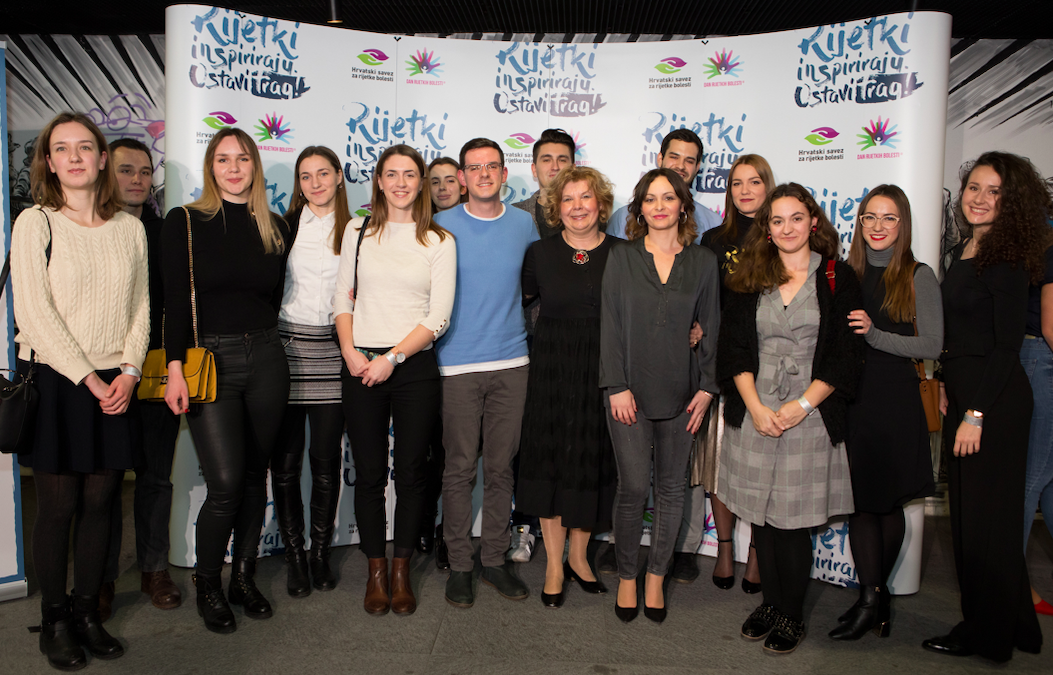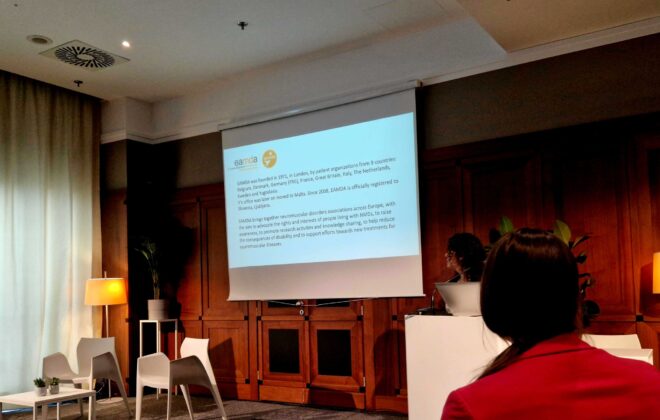The Student Help Line for Rare Diseases Project – Recipient of the Rector's Award for Socially Beneficial Work in the Academic and Wider Community
Kroz besplatnu liniju pomoći za rijetke bolesti, 0800 9966, godišnje se pruži pomoć više od 1000 korisnika. The professionals respond to inquiries about rights related to social welfare, healthcare, pension systems, education, and other areas, handle requests, complaints, questions related to transportation, provide updates, organize student internships with users, arrange social activities such as theater visits, connect individuals with the same diagnosis in Croatia and the region, educate other professionals in helping professions, and offer individual or group psychological counseling to users.
When it comes to medical information (such as details about diseases, treatment methods, and available therapies), student volunteers from the Faculty of Medicine, University of Zagreb play an indispensable role in the operation of the Rare Disease Helpline, a project they have been involved in since 2014. Student Rare Disease Helpline has been operational for six consecutive years, continually enhancing its work year by year. In response to inquiries about rare diagnoses, the students provide detailed and verified information, which is highly valuable to the users. In their work, the students demonstrate responsibility, professionalism, and motivation for working with rare diseases. Student Rare Disease Helpline has four senior volunteers who have been involved for several years, as well as thirteen new volunteers. The senior volunteers guide the new volunteers in their work and assist them in answering newly received cases. When writing information about a rare disease, which is the most common task, the volunteers typically search the following websites: Genetic and Rare Diseases Information Center (GARD), National Institutes of Health (NIH), and Orphanet. For information they are unable to find, they consult doctors specializing in rare diseases or specific fields. In addition to searching for all relevant information, writing expert articles, and actively participating in national conferences on rare diseases and other public events organized by the Croatian Alliance for Rare Diseases and the Society for Rare Diseases within the Croatian Medical Association (HLZ), the student volunteers also organized the 1st Student Symposium on Rare Diseases this year, in observance of Rare Disease Day, at the Faculty of Medicine.

The first head of the helpline was Neven Obradović-Kuridža, followed by Nikola Šoštar, both of whom were former active volunteers of the Students' Rare Disease Helpline and are now medical doctors. Since 2014, the number of volunteers on the helpline has continually fluctuated due to the graduation of senior students and the enrollment of new volunteers. When sixth-year students complete their studies and start working as doctors, they pass on the responsibility for the operation of the Students' Rare Disease Helpline to younger colleagues, who, through their enthusiasm and dedication, strive to elevate the work of the helpline each year and honor the trust placed in them by their senior colleagues. Such a handover of duties occurred just a few days ago when the previous head of the helpline, Josip Stojić, also a very active volunteer of the Students' Rare Disease Helpline, completed his studies and secured employment as a doctor. The project was diligently prepared by eleven students: Josip Stojić, Vana Vukić, Tomislav Smoljo, Lorena Podgorski, Ema Kovačević, Ema Šćulac, Mia Kovačević, Dorotea Sinjeri, Nika Barbara Pravica, Mirta Đuzel, and Dorotea Kozić.

In their six years of operation, the students of the helpline have demonstrated an exceptional level of professionalism, conscientiousness, and responsibility in their work. We believe they are deserving recipients of the Rektor’s Award “Award for Socially Useful Work in Academia and the Broader Community.”. Naše priznanje imaju svaki dan i neizmjerno smo im zahvalni na pomoći koju pružaju ovoj osjetljivoj skupini. Nadamo se da će im Rektorova nagradabiti dodatan vjetar u leđa, motivacija za budući rad i da će potaknuti još veći interes studenata da se uključe u društveno koristan rad. Zahvaljujemo im što radom i dodatnim angažmanom omogućuju da se u akademskoj i široj zajednici podiže svijest o problematici rijetkih bolesti o kojima se još uvijek premalo zna.


